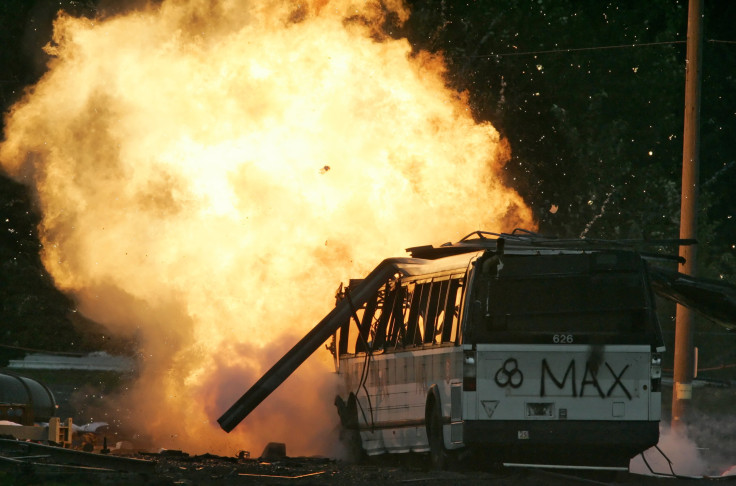Islamic State Nuclear Weapons? Russian Smugglers Tried To Sell Radioactive Cesium To ISIS

A member of the Moldovan police posing as an Islamic State group representative helped nab a Russian gang that was trying to sell radioactive materials that could have been used to make a dirty bomb. The undercover mission was led by local police and FBI operatives, according to an investigation reported Wednesday by the Associated Press.
The latest attempt to sell nuclear materials came in February when the FBI and local police snuffed out attempts by gangs to sell radioactive cesium, which is one of the ingredients that can be used to create dirty bombs. The radioactive bomb does not have the explosive or destructive power of a nuclear bomb, but can spread dangerous and powerful radioactive material across large areas and cause general hysteria.
Moldovan police, using FBI intelligence, had been going undercover with the gangs using traditional police methods, such as concealed recording devices and radiation detectors, according to the report.
But authorities in the former Soviet republic of Moldova, which lies between Romania and Ukraine, said the breakdown in relations between Russia and the West -- which began to deteriorate after Russia annexed Crimea in March 2014, entered into the east Ukraine war and is now bombing Syria -- have made it far more difficult for U.S. authorities to track smugglers who are moving radioactive materials throughout Eastern Europe’s porous borders.
"In the age of the Islamic State, it's especially terrifying to have real smugglers of nuclear bomb material apparently making connections with real buyers," Matthew Bunn, a Harvard professor who led a secret study for the Clinton administration on the security of Russia's nuclear arsenal, told the AP.
One of the main problems, the AP report noted, is that authorities are catching suspects in the early negotiating stages of the deal, before finding the nuclear material and the ringleaders of the gangs.
Aside from February’s bust, authorities arrested six people in 2011 who were trying to sell bomb-grade uranium to a Sudanese terrorist. According to officials at the time, the uranium was brought in from Russia and had a value of about $25 million. Police officials had been attempting to trace former KGB agent Alexandr Agheenco, who had gotten the nuclear material through Russian military contacts.
In August, Ukrainian police prevented ore-grade uranium from getting into the hands of a criminal group in the western region of Ukraine. It was not established where the radioactive material would have been used, although authorities speculated that pro-Russian rebel groups in the war-torn east of the country may have been trying to build a dirty bomb.
“The DPR [rebel Donetsk Peolpes Republic] plans to use radioactive material to create a dirty bomb with which it can blackmail the international community and the government of Ukraine,” said Yuriy Tandit, chief adviser to Ukraine Security Services.
© Copyright IBTimes 2024. All rights reserved.






















